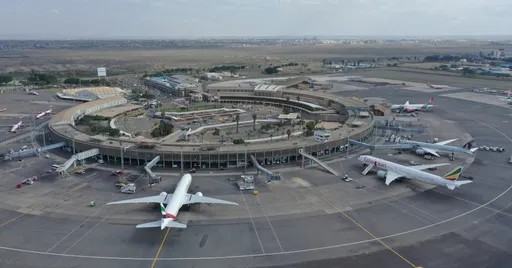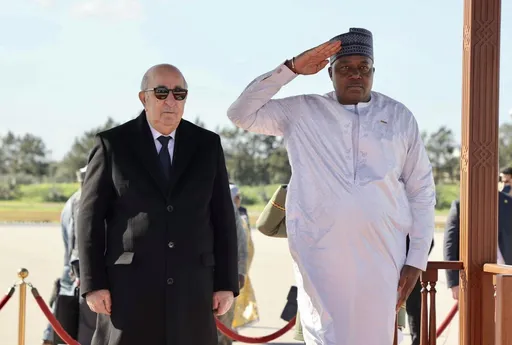By Giorgio Cafiero
Middle East experts have a range of opinions about the nature of Saudi Crown Prince and Prime Minister Mohammed bin Salman (MBS)’s relationship with the United Arab Emirates (UAE) President Mohammed bin Zayed (MBZ). Some commentators maintain that the alleged rift between these two Arab leaders is so great that their countries will soon cease to be allies, while others point to a meeting between the two leaders last month in eastern Saudi Arabia as a sign that there are no serious tensions.
The reality probably lies somewhere in between.
While regional ties between the two states are unlikely to sever - as they had done with Qatar in 2017 - Riyadh and Abu Dhabi have different priorities, positions, and interests which have created complications.
From the question of normalising relations with Israel to certain conflicts in Africa such as the Sudanese civil war, Saudi and Emirati interests do not align, so naturally some friction exists in bilateral affairs. There is also increasingly serious economic competition between these two Gulf Cooperation Council (GCC) states as both pursue their own development and economic diversification plans.
Cordial relations
“As the senior party between these two leaders, [MBZ] expects to be treated with deference, which is why periodic disagreements surface,” explained Joseph A. Kechichian, a senior fellow at the King Faisal Centre in Riyadh, in an interview with TRT World.
MBZ is a regional leader who likes to set trends and assert his influence on the international stage. Questions about how his relationship with MBS would evolve as the young and confident Saudi leader ascends and flexes his own muscles as the de facto ruler of the largest Gulf Arab monarchy have consistently fueled interesting albeit somewhat speculative debates.
“In my estimation, the best way to describe the relationship between both states at the current time is that it is a mixture of cordiality, tension, and pragmatism,” Aziz Alghashian, a fellow with the Sectarianism, Proxies & De-sectarianisation project at Lancaster University, told TRT World.
Tensions between MBS and MBZ do not constitute a “bitter rivalry”, according to Hussein Ibish, a senior resident scholar at the Arab Gulf States Institute in Washington. Instead, he described them as part of a “contained and manageable competitive relationship” which is healthier than the “illusion of dominance and subordination” that Saudi Arabia and the UAE pushed in the post-2011 period when the fall-out from the Arab Spring turmoil and armed conflicts were fueling instability across the Arab world.
“But beneath the veneer of a kind of ‘no daylight’ unity lurked an unresolved competitive relationship that reflects the reality of economic, political, and even military power in the Gulf,” added Ibish.
In 2021, authorities in Riyadh started requiring foreign firms with a presence in Saudi Arabia to have their headquarters established in the Kingdom by 2024. Although the leadership in Saudi Arabia signalled how this was part of a strategy aimed at securing real long-term commitment to the country’s development, it constitutes a challenge to the UAE’s position as the GCC state where most foreign companies operating in the Gulf set up headquarters.
Yemen, a source of contention
In terms of the Arabian Peninsula’s security architecture, Yemen is the greatest source of contention between Saudi Arabia and the UAE.
Beginning in March 2015, Riyadh and Abu Dhabi together led an Arab military coalition aimed at reversing the Houthi gains of 2014/15. But several years into that campaign the Emirati leadership recognised how disastrous it had become and shifted course.
In 2019, the UAE officially withdrew its forces from Yemen and began focusing on influencing southern Yemen’s landscape via surrogate non-state actors. This entailed the UAE backing various Yemeni groups such as the Southern Transitional Council (STC) while leaving Saudi Arabia to fight the Houthis in northern Yemen.
“The fact is that the UAE [and] Saudi Arabia went into Yemen in the first place with different agendas, pursuing different but overlapping wars and divergent ideological frameworks. Over time, that became more obvious than it was [in the] beginning, and it remains true now,” said Ibish.
There is no denying that such conflicts of interest between Saudi Arabia and the UAE vis-à-vis Yemen have created dynamics on the ground which serve Houthi interests and, by extension, those of Iran. The lack of alignment between Riyadh and Abu Dhabi has been a huge factor contributing to the weakness and ineffectiveness of the Presidential Leadership Council (PLC), which is the body at the helm of Yemen’s internationally recognised government, when it comes to dealing with the Houthis.
The UAE-sponsored STC opposes Saudi-backed elements in Yemen that believe in North-South unity. As Kechichian explained, Abu Dhabi’s support for the STC, which calls for reestablishing the independent state of South Yemen that previously existed from 1967-90, has led to “serious divergences” between Saudi and Emirati foreign policies vis-à-vis Yemen, fueling an “ongoing stalemate in that hapless country.”
The two GCC partners support different Yemeni groups that, for all practical purposes, perpetuate the current fragmentation, explains Kechichian. Adding, Riyadh and Abu Dhabi do not seem ready to put aside their differences and back a single leadership that can defeat the Houthis, maintain Yemen’s unity, and invest in its reconstruction.
Veena Ali-Khan, a Yemen and Persian Gulf researcher, told TRT World, “There are still rumours that the [UAE is] pushing to take control of the Aden port through Dubai Ports World. More importantly, stark divisions still exist within the anti-Houthi bloc forces, with growing animosities between the STC and Amalika forces, which are ostensibly supposed to be on the same side. To put it bluntly, Saudi-UAE conflicting agendas in Yemen are still contributing to PLC-fragmentation.”
Nonetheless, until now Riyadh and Abu Dhabi have managed to prevent their conflicting interests in Yemen from fueling some all-out crisis in bilateral affairs, even if some commentators have spent years suggesting the Saudi-UAE alliance is deteriorating.
Instead, they have “proven adept at compartmentalising their rivalries—especially when the situation with their allied forces on the ground has reached a boiling point,” commented Ali-Khan.
Saudi stakes in South Yemen
The Saudi leadership would consider either a de facto or de jure return to Yemen’s partition disastrous. There are various reasons, including the fact that Riyadh does not believe it could yield sufficient influence in an independent state in southern Yemen that might re-emerge in the future. However, policymakers in Riyadh may be left in a position whereby they have to make the most of secession in southern Yemen.
“I think [Saudi officials] would just have to accept it is a fait accompli, but they wouldn't like it. It’s not in their interests. If they can do anything to ensure it doesn't happen, they will,” commented Ibish.
Other experts agree. “While hypothetical, an emergent South Yemen would pose serious challenges to Riyadh that would probably not welcome any secessionist forces on the Arabian Peninsula, something that the GCC—presumably—would not like to see either,” Kechichian told TRT World.
But if such a split of Yemen, either formal or informal, occurs, Riyadh would likely react carefully in order to avoid needlessly exacerbating or complicating tensions that could further backfire against Saudi Arabia’s geopolitical security interests.
“I anticipate the Saudi ruling elite will assess how an independent South Yemen affects stability on the Saudi border,” said Alghashian.
“For Saudi Arabia, it has become clear that it is willing to be pragmatic in who it is dealing with. With that said, I do not see the Saudis just simply sitting back and allowing the STC to purely reign in the south. Therefore, if a South Yemen state does happen, this will mean that both Yemens will be managed sphere of Saudi-UAE competition for years to come,” he added.
Regional dynamics and the wider picture
Fierce competition and high levels of tension among GCC states have always existed. Yet, throughout history these tensions have gone further below the surface amid times of crisis in the region. This is the case today amid Israel’s war on Gaza, which has expanded into the Red Sea and might possibly lead to a full-blown war in Lebanon.
Within this context, it is likely MBS and MbZ, as pragmatic leaders, will mitigate and contain tensions between their countries in relation to Yemen; sidelined, but not resolved. After an eventual ceasefire in Gaza and violence in the Red Sea, southern Lebanon, and northern Israel comes under greater control, it will be important to monitor how Riyadh-Abu Dhabi tensions over Yemen’s future play out.
Giorgio Cafiero is the CEO of Gulf State Analytics (@GulfStateAnalyt), a Washington, DC-based geopolitical risk consultancy.
➤ Click here to follow our WhatsApp channel for more stories.




















.JPG?width=512&format=webp&quality=80)


